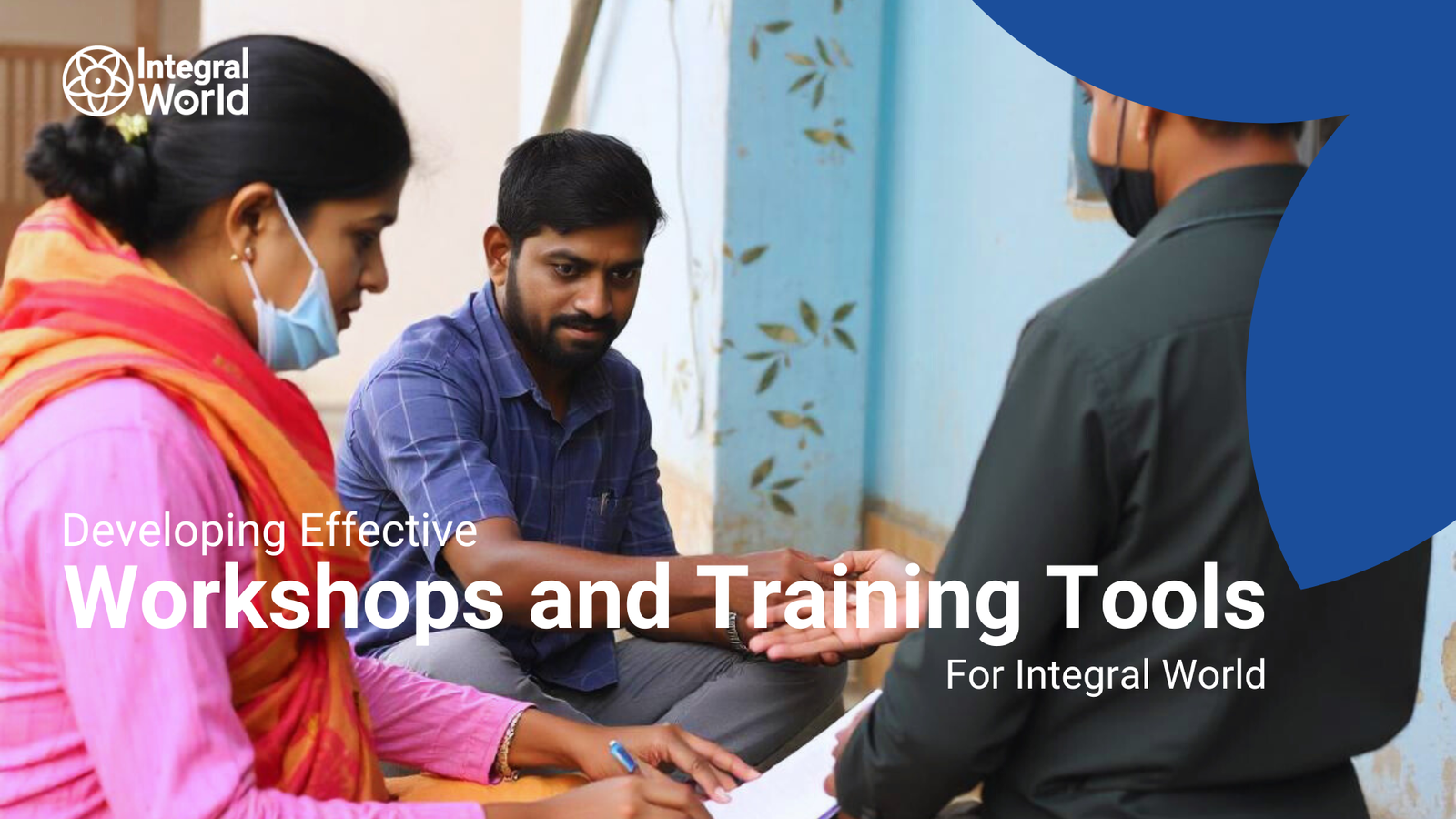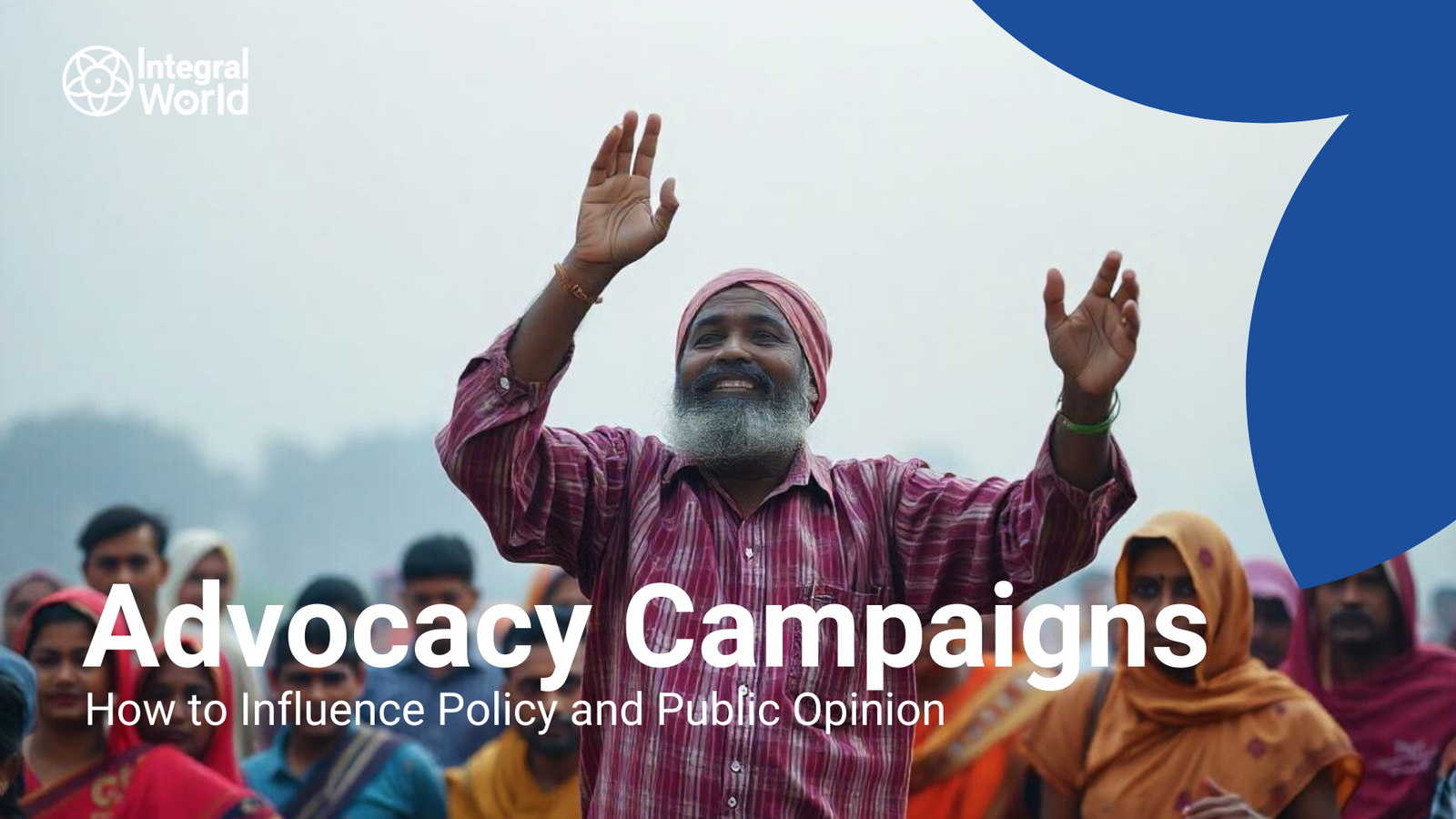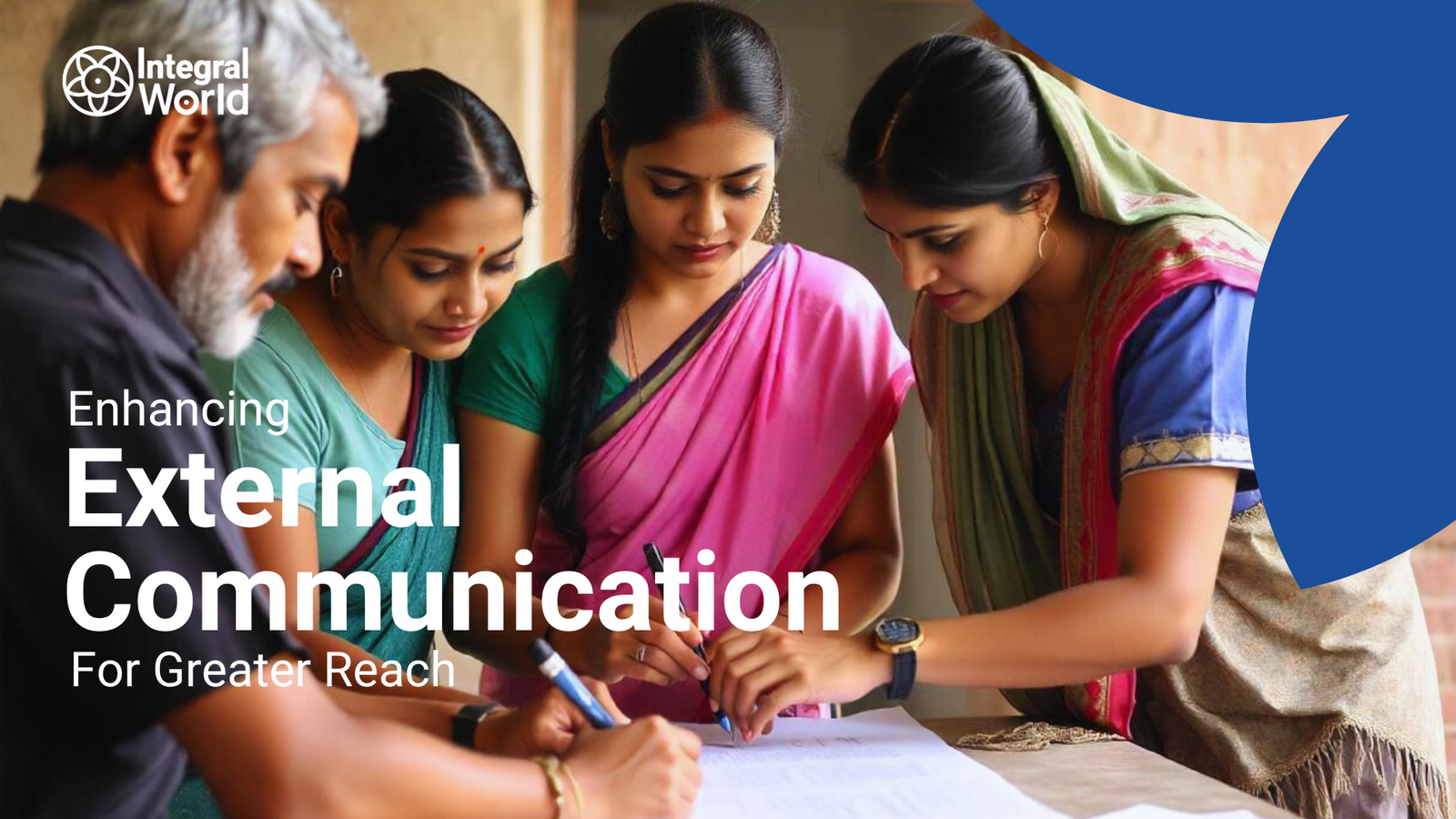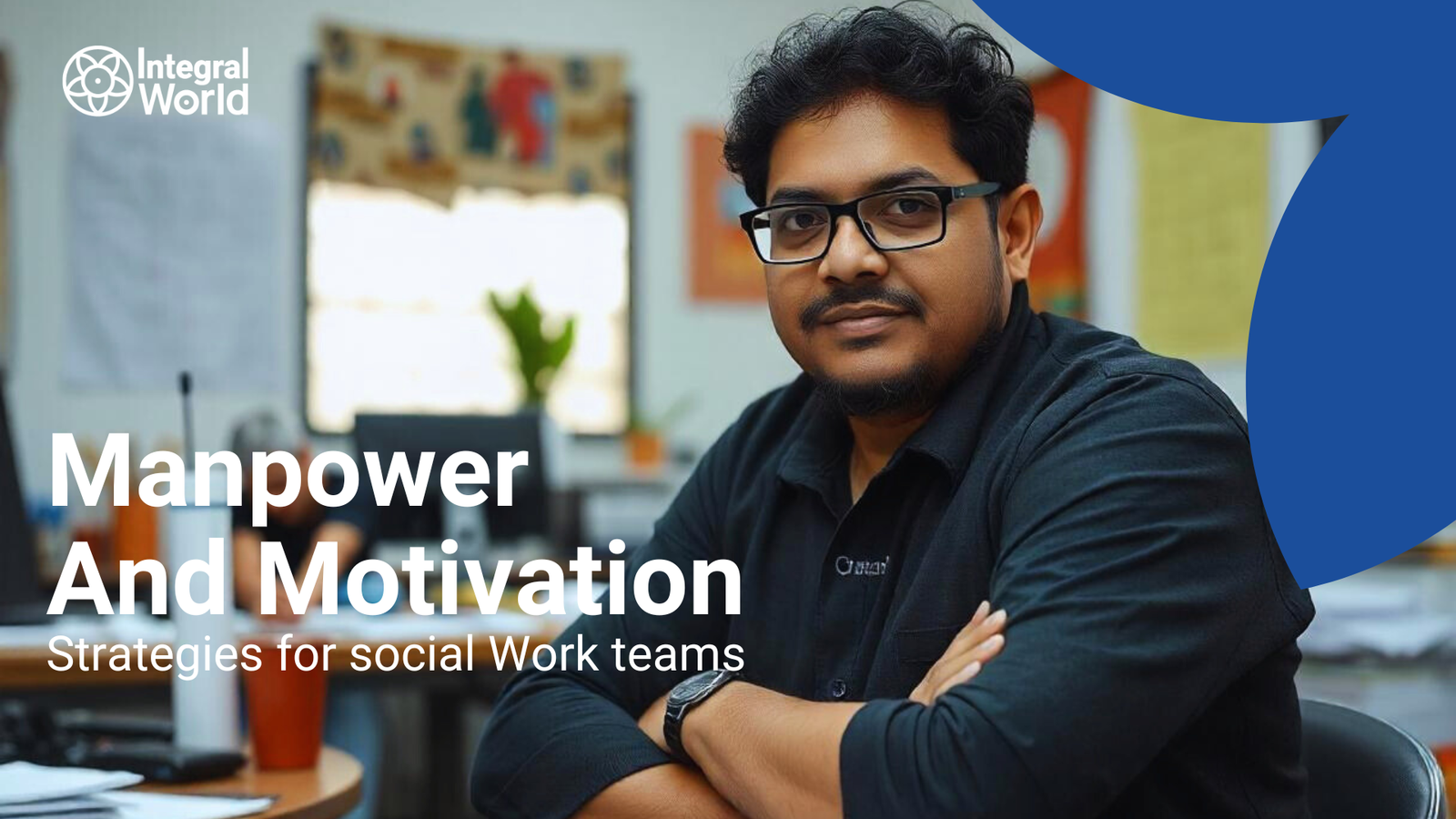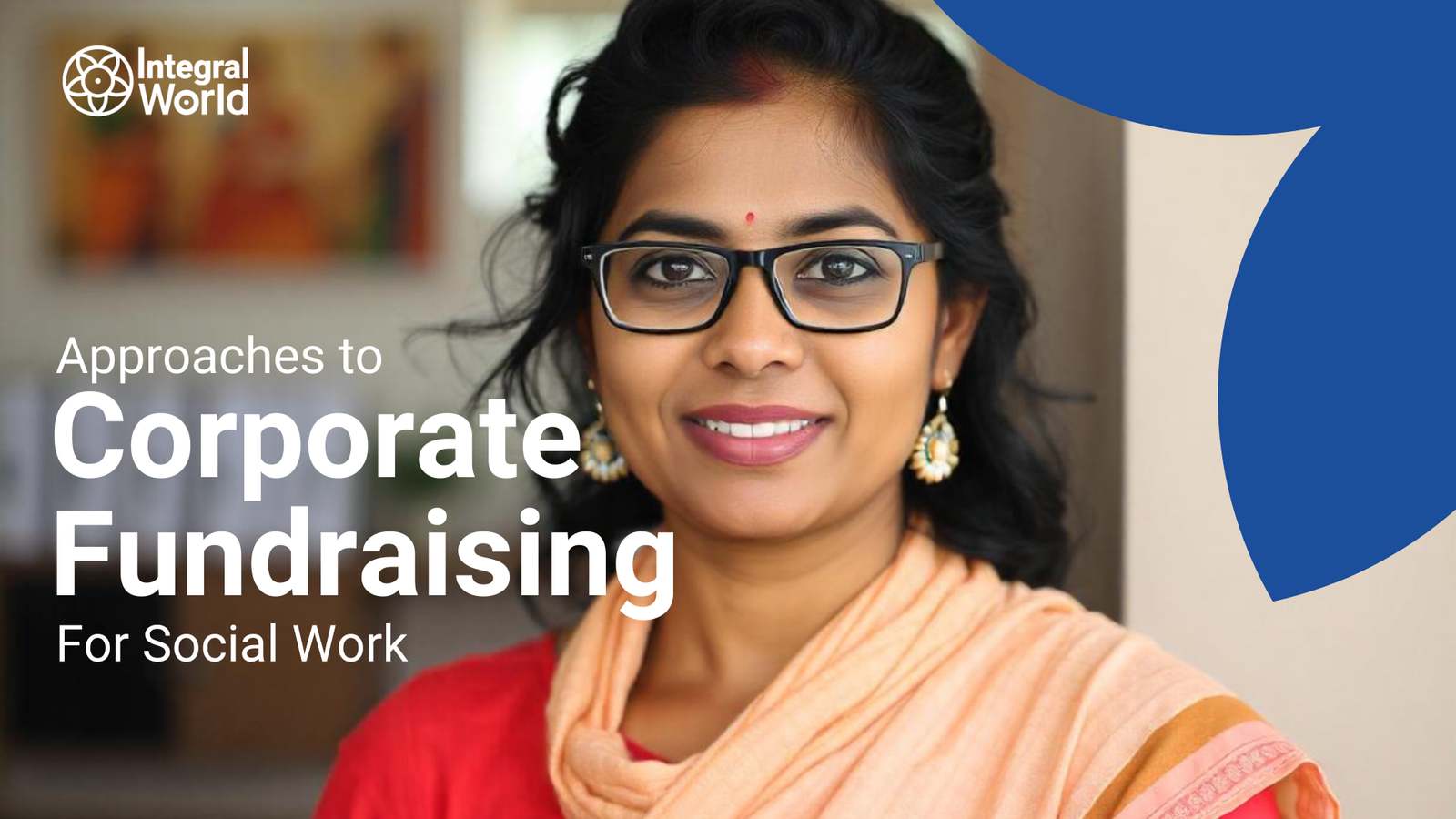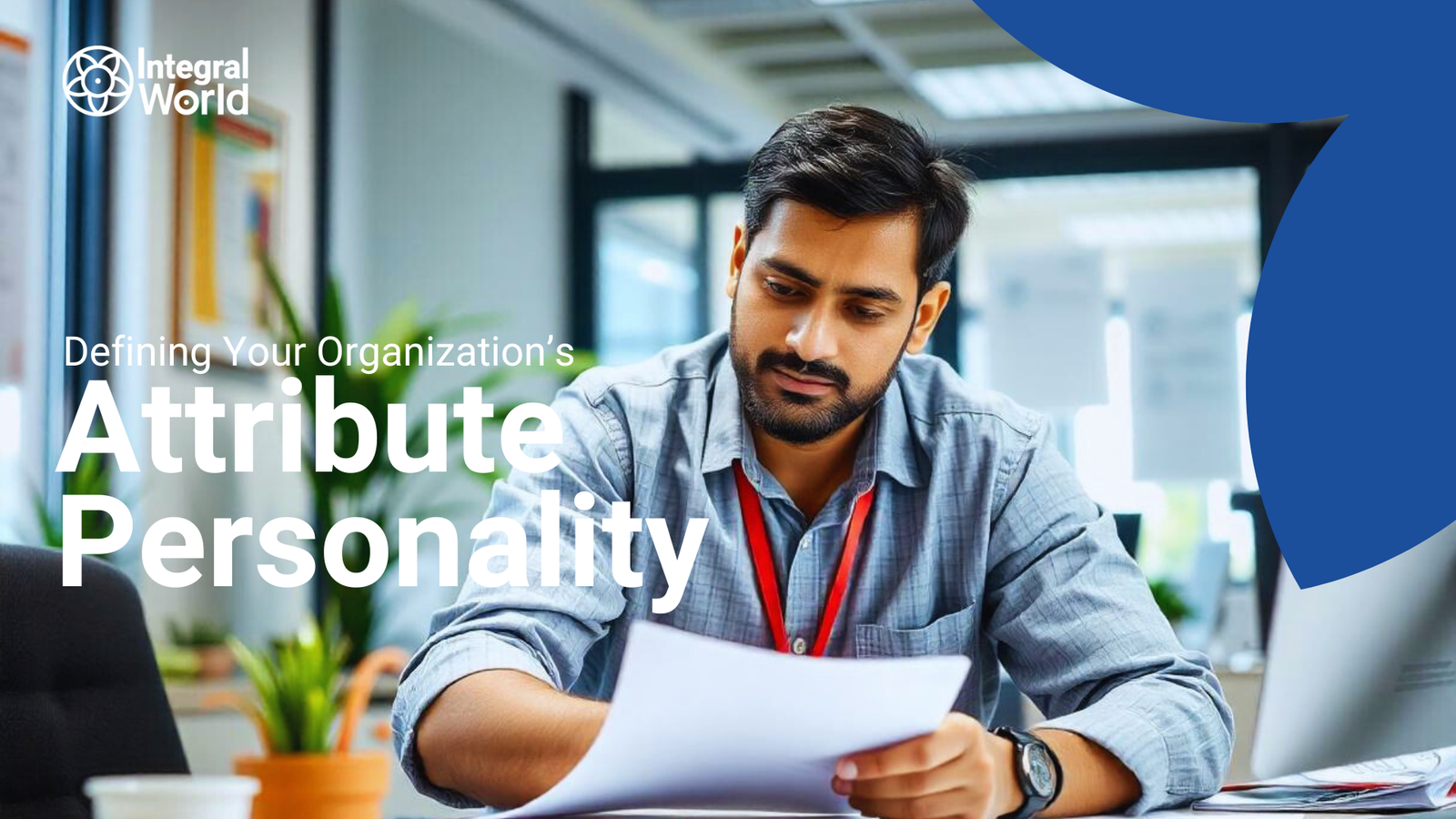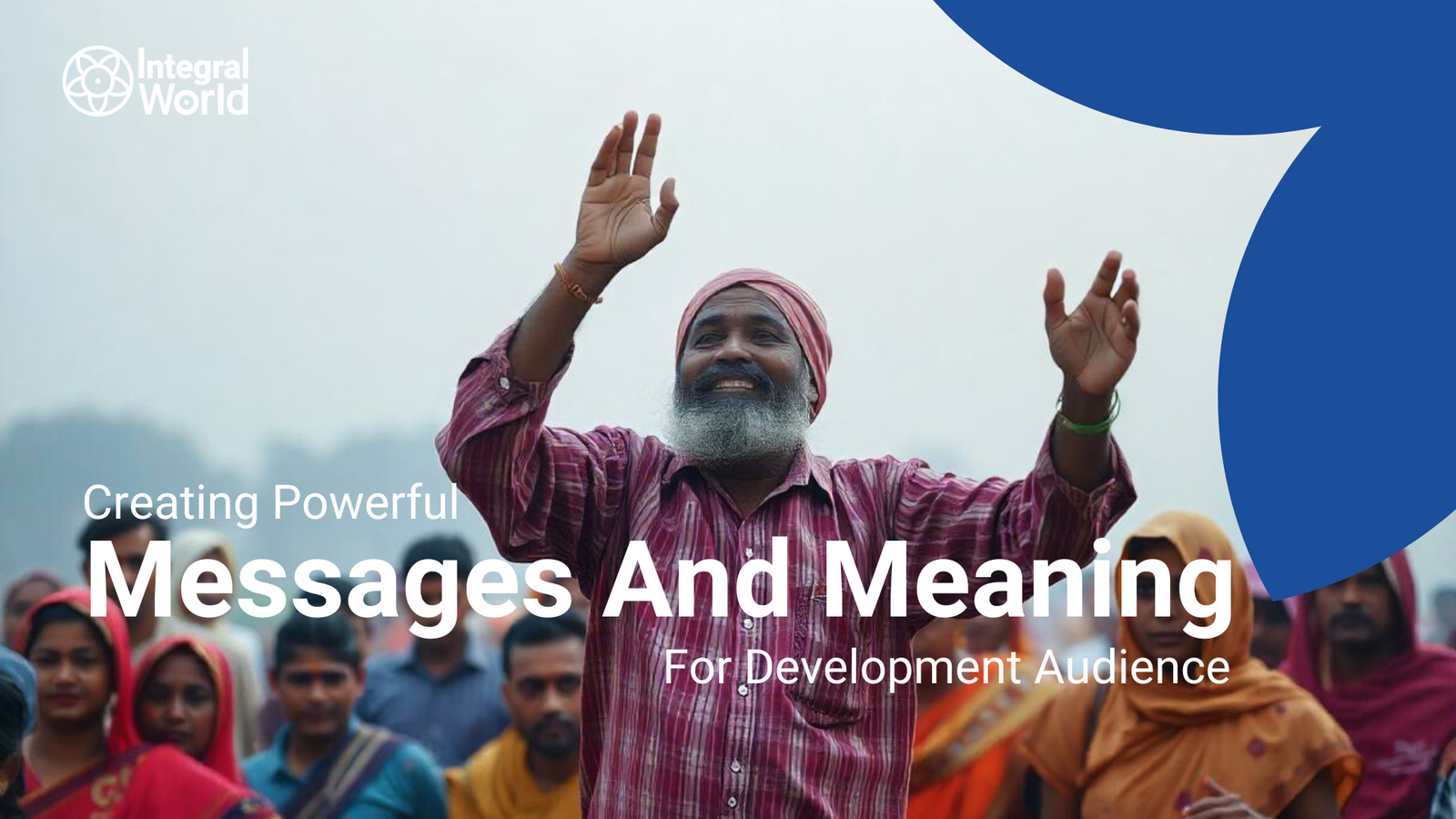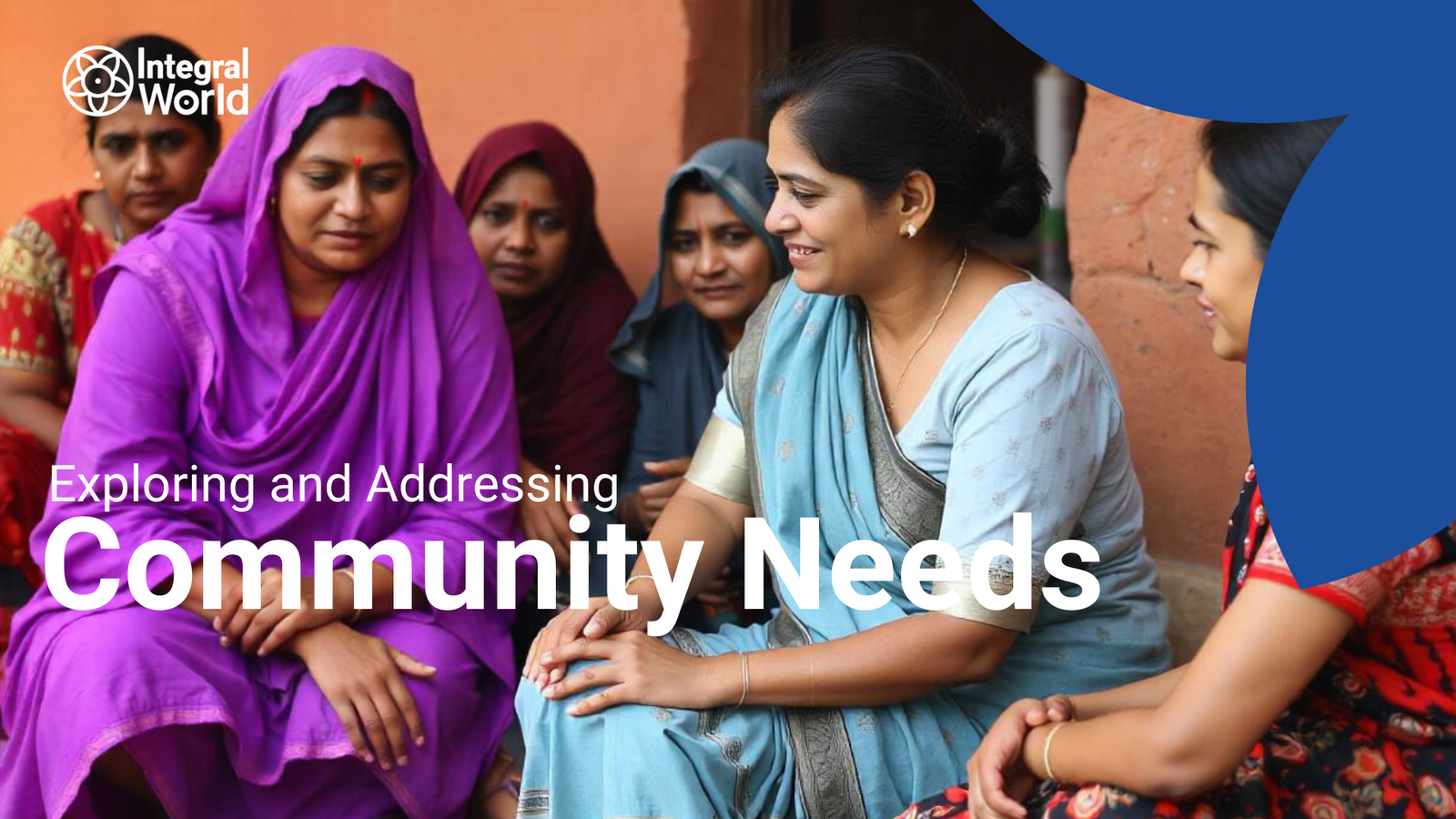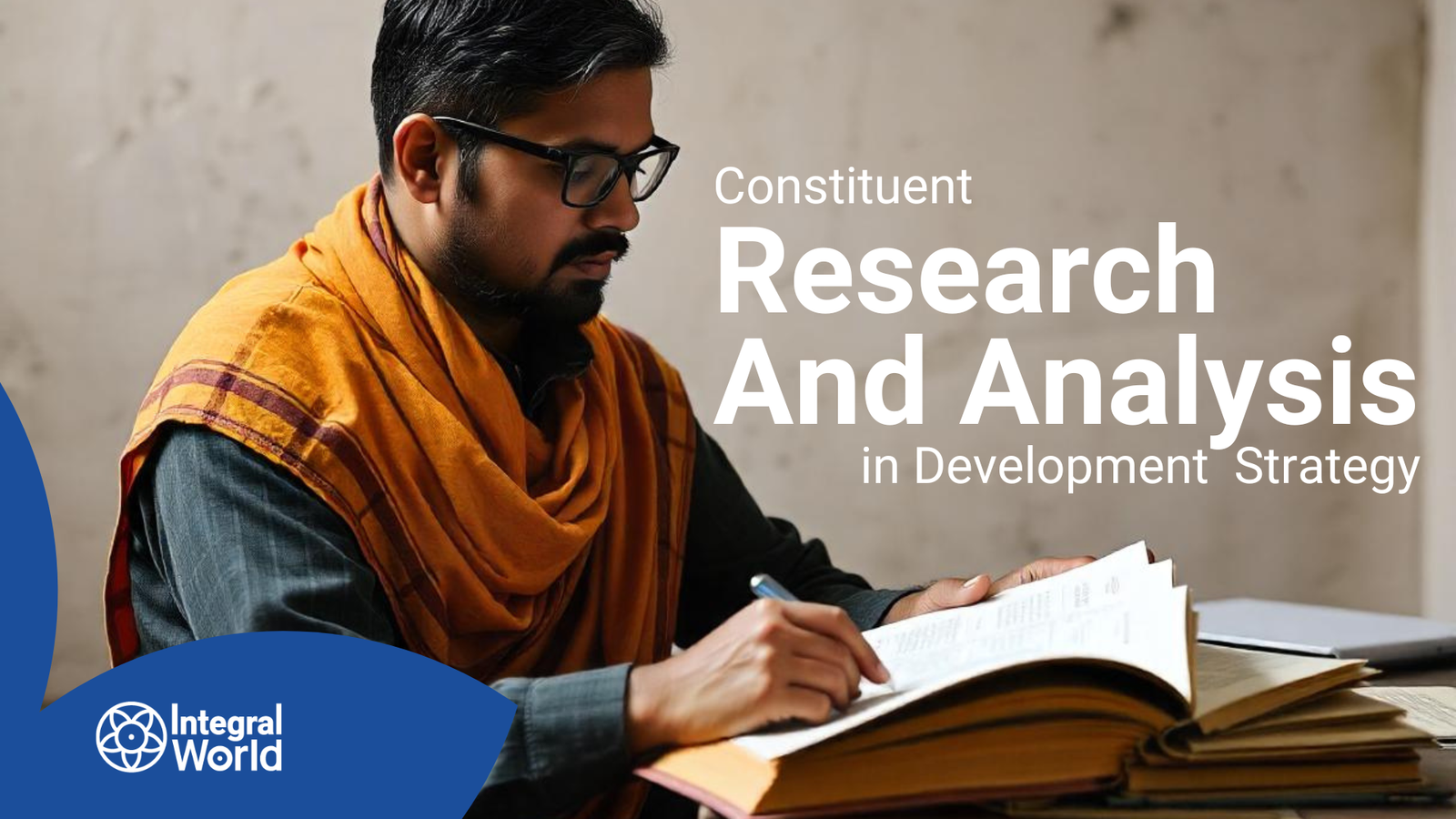Learn expert strategies to develop workshops that drive sustainable development, build capacity, and empower communities for long-term impact.
Continue readingAdvocacy Campaigns – How to Influence Policy and Public Opinion
Explore strategies for advocacy campaigns that inspire action, influence policy, and advance Sustainable Development Goals.
Continue readingGuide to Selecting and Using Measurement Tools in Development
Explore Integral World’s approach to using measurement tools for tracking progress and driving sustainable development.
Continue readingEnhancing External Communication for Greater Reach
NGOs like Integral World can boost their mission through stronger external communication. This paper offers expert tips and strategies for greater outreach.
Continue readingManpower & Motivation – Strategies for Social Work Teams
Explore Integral World’s strategies for managing and motivating diverse social work teams to drive effective, sustainable development
Continue readingApproaches to Corporate Fundraising for Social Work
Discover how Integral World uses innovative corporate fundraising to drive sustainable development and social change.
Continue readingDefining Your Organization’s Attribute Personality
Defining attribute personality boosts NGO impact. Learn how Integral World builds a strong identity for sustainability and holistic development.
Continue readingCreating Powerful Messages & Meaning for Development Audience
Effective communication is vital in development. Learn how Integral World crafts messages that engage audiences, drive participation, and foster sustainable transformations
Continue readingExploring and Addressing Community Needs
Community complex needs are the foundational elements of successful projects. Integral World understands this perfectly and therefore, it is passionate about helping communities.
Community needs are a critical requirement, not just for development initiatives but also inclusive and efficient interventions. Therefore, through in-depth needs assessments, they can make their programs responsive to local priorities, community-owned and sustainable.
This article examines the approaches used when identifying the needs of communities as well as ethical concerns that must be addressed by participants to guarantee their active involvement in any project initiated by Integral World.
Importance of Community Needs Assessment
Why Assess Community Needs?
Community needs assessment involves systematic processes to identify gaps, challenges and opportunities within a target population. They provide a foundation for strategic planning, resource allocation and program design so that interventions can be responsive and relevant.
Shareable Quote: “Alone we can do so little; together we can do so much.” – Helen Keller
Methodologies for Assessing Community Needs
Surveys and Questionnaires
Surveys and questionnaires represent quantitative instruments used primarily to gather information on demographic characteristics of a community such as age distribution or socioeconomic status (SES). They help give an overall view as well as statistical hints on what matters most to people locally.
Focus Groups and Interviews
Focus groups and interviews have been conducted with members from different cultures across various countries who could present ideas on how best they would want things done if given chance themselves or maybe even specifically request certain kind of changes; thus making them feel included in decision-making processes related directly toward improving their own lives rather than just being passive recipients under external control.
Expert Insight: Prof. John Davis
Prof. John Davis is an expert in Community Development who stresses that “Listening to the voices of locals should be at the heart of any need assessment process because it is all about human relationships built on trust – finding solutions together based upon shared values.”
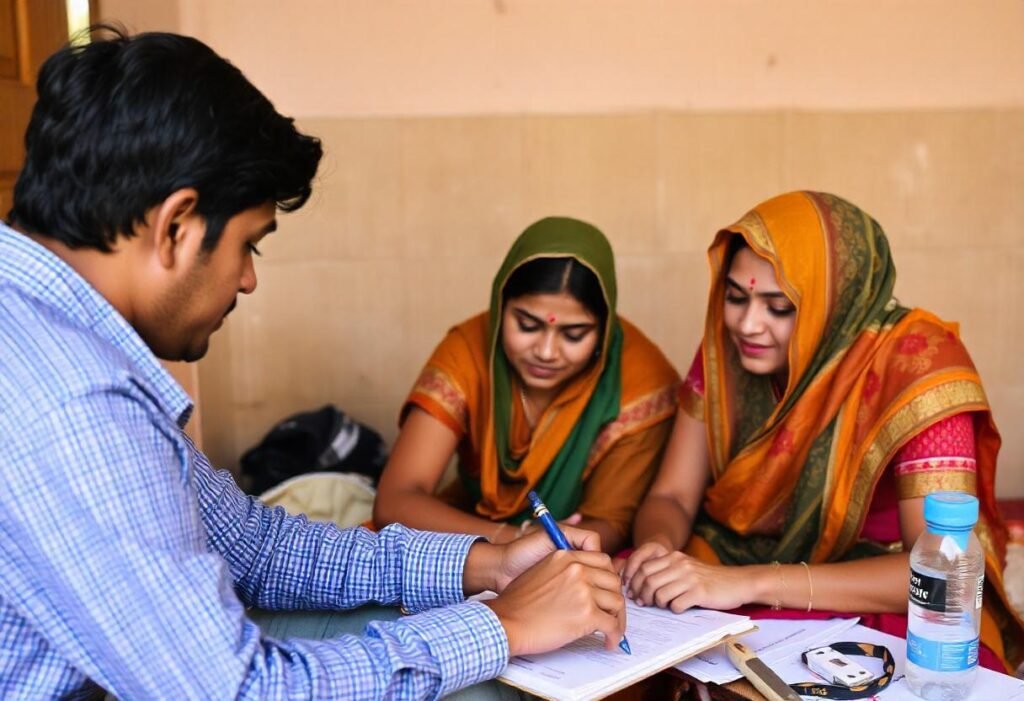
Addressing Identified Community Needs
Tailoring Interventions to Local Contexts
Once needs are identified, organizations should develop tailored interventions that align with community priorities and resources. This approach ensures sustainability of programs and makes the initiatives more culturally sensitive as well as contextually-appropriate.
Building Collaborative Partnerships
Collaborations should be formed with local stakeholders including community leaders, NGOs, government agencies and businesses who can offer solutions to tackle complex problems. Through such partnerships, they are able to pool their collective knowledge so as to have a greater impact on people’s lives.
Shareable Quote: “The strength of the team is each member. The strength of each member is the team.” – Phil Jackson
Case Studies: Successful Community Needs Assessments
Case Study: Water.org
To know what water and sanitation projects it should implement in underdeveloped areas, Water.org usually engages in various community needs assessments. In this regard, the organization works closely with these communities for them to come up with sustainable solutions that address issues like lack of clean drinking water sources or proper sewage systems.
Case Study: Habitat for Humanity
Habitat for Humanity uses community needs assessments in its affordable housing programs worldwide. By partnering with residents in those regions together with their governments and volunteers from different countries around globe, they construct houses that best suits their unique requirements at each site where land has been donated by locals themselves.
Ethical Considerations in Community Needs Assessment
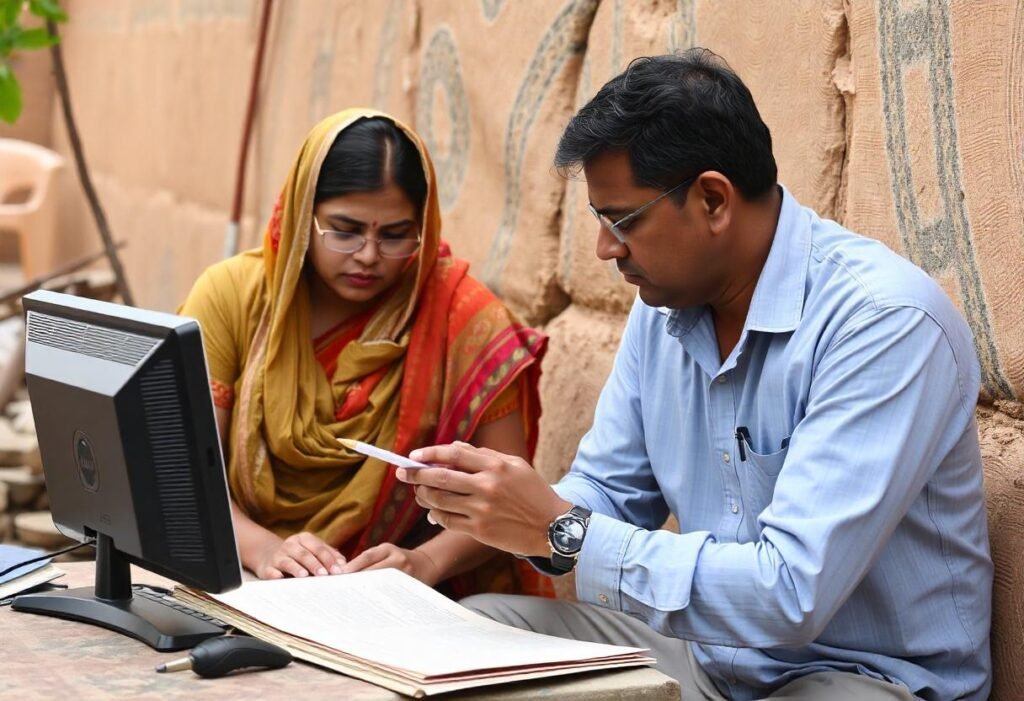
Respect for Cultural Sensitivity
When conducting assessments respect cultural norms, values and traditions which form part of any assessment process irrespective how simple it seems because being inclusive entails respecting diversity within communities when collecting data.
Accountability and Transparency
Throughout the assessment process we will maintain transparency by articulating aims openly; describing methods used; explaining outcomes achieved thus far among other issues revealed through various stages undertaken so far within these communities related directly toward improving their own lives rather than just being passive recipients under external control.
Dynamic Steps for Non-Governmental Organizations and Associations
Give Priority to Inclusiveness and Diversity
Make sure that assessments of needs include diverse voices and the marginalized members within the society. Have inclusive practices that empower all community members to take part in a meaningful manner.
Be Open to Learning at All Times and Flexibility
Continually assess interventions based on changing needs of communities and feedback among others. Create an environment which is agile and flexible enough to respond promptly to changing situations.
Conclusion
To sum up, the process of evaluating and responding to community needs is not a mere strategic imperative but also an ethical responsibility for sustainability oriented organizations.
Integral World stresses on the significance of paying attention to community voices and giving them a chance to select solutions that they can identify with. Organizations may create real partnerships that enable people in communities to succeed by making inclusiveness as well as needs assessment based on cultural sensitivity and ethical considerations their priority.
This article has given various cases and insights from specialists about the transforming power of comprehensive needs assessments. Using surveys or partnering with others to collect data, these approaches allow agencies customize their remedies for local areas thereby ensuring sustainability in the long run.
Contact us today at Integral World so that we can support your organization build its capacity through our expertise on Community Needs Assessment. Let’s together come up with answers that are pro-poor towards prioritized concerns of societies leading sustainable development goals.
Constituent Research and Analysis in Development Strategy
It is necessary to grasp the needs, preferences and behaviour of constituents for development strategies to move forward effectively and sustainably. Constituent-related research and analysis guide strategic decision-making, offering unique insights, optimizing resource allocation, and enhancing program outcomes. By utilising this kind of research organisations change their game towards empowering communities while achieving real results. This article highlights the importance of constituent-related research and analysis in shaping development strategies as well as how strategic workshops and training programs can further amplify these efforts.
The Significance of Constituent-Related Research and Analysis
Constituent-related research involves gathering information about communities or individuals that an organisation serves and interpreting it. Such research may have several aspects including demographic profile, needs assessment, preferences as well as feedback received from them. Organisations gain knowledge on these factors for tackling real issues related to their development planning thus making more impact.
Main Benefits of Constituent-Related Research and Analysis
Informed Decision-Making: The basis for making informed decisions is laid through research. Organizations efficiently identify priority areas, allocate resources rationally, and develop programs that respect client interests, reducing guesswork and boosting the chances of achieving desired results
Enhanced Program Design: Programs designed by organisations become more relevant due to feedback given by constituents who say their thoughts concerning initiatives they take part in. Inclusion of community input into program development ensures practicality, effectiveness and acceptability among others in design interventions.
Increased Accountability: Transparent evidence-based decision making improves accountability within an organisation when constituents see that their inputs were valued and thus trusting such institutions even more actively supporting them. This fosters trust leading to increased engagement as well as support for developmental initiatives.
Improved Stakeholder Engagement: Motivations plus concerns of stakeholders are understood better through research. Such comprehension helps in more meaningful engagement and collaboration among community members, donors and other partners.

Driving Development Progress through Strategic Workshops and Training Programs
Strategic workshops and training programs play a critical role in harnessing constituent-related research for development progress. These programs equip organizations with the skills to analyze data, apply research to planning, and implement impactful, strategic initiatives.
Strategic Workshops:
Purpose: The purpose of strategic workshops is to bring together key stakeholders including staff, community members, experts etc., to jointly develop or refine development strategies. These forums actively share insights, brainstorm solutions, and align goals to drive meaningful progress and impactful results.
Benefits:
Collaborative Planning: Workshops foster collaboration and diverse perspectives, leading to more comprehensive and innovative strategies.
Skill Development: Participants gain valuable skills in data analysis, strategic planning, and program design.
Actionable Outcomes: Workshops often result in actionable plans and clear next steps driving progress toward development goals.
TRAINING PROGRAMMES:
Purpose: It is an opportunity for training programs to focus on a range of relevant issues ranging from data analysis, research approaches and strategic planning. These equip organizations with the skills to conduct meaningful constituent research and apply insights effectively in their strategic planning.
Benefits:
Increased Capacities: This is because all such training courses are designed to boost a firm’s capacity in terms of staff competence in research work, analytical skills as well as formulation of strategies.
Data-Driven Decision-Making: This involves interpreting information and facts, determining what’s happening over time and making learned choices based on evidence obtained from studies.
Continual Improvement: Organisations can remain flexible to the changing needs of communities as they continuously learn and adapt through using training programs.
Actionable Tips for Leveraging Constituent-Related Research
Engage in Continuous Dialogue: Always have a conversation with your constituents to gather real-time feedback and insights. Use surveys, focus groups, and interviews to regularly engage community members in order to understand their needs and preferences.
Utilise Data Analytics Tools: Employ data analytics tools and technologies that can help analyse research findings. These tools help identify trends over time, track progress, and provide valuable insights into current developments and outcomes
Incorporate Feedback into Strategy: Use your findings from such studies as an input for refining development strategies. Incorporate the feedback from the public into program design, implementation as well as evaluation processes.
Foster a Culture of Learning: Encourage continuous learning within your organisation. This may involve staff training programs that help enhance one’s competencies in research, analysis and strategic planning among others.
Measure and Evaluate Impact: Regularly measure up how much positive change has been brought about by these initiatives supported by corresponding evidence collected analytically. Use this data to demonstrate results, identify gaps, and impress external stakeholders by showcasing the relevance of your work
Conclusion
Constituent-related research is instrumental in shaping development strategies. By designing programs based on the needs and desires of communities they serve, organisations become agents of meaningful sustainable change. Strategic workshops together with training courses reinforce all these efforts through building capacities fostering collaborative decision making thus being able to make data-driven decisions.
Integral World actively supports organizations in leveraging research and analysis to achieve their development objectives. Our proficiency in strategy formations, enhancing competencies and community mobilisation makes us a valuable partner in facilitating a purposeful change.
To discuss our strategic workshops and training programs that aid in conducting stakeholders’ research for goal achievement, contact Integral World today. For a more meaningful future that would last long, let’s make the agenda together now.

